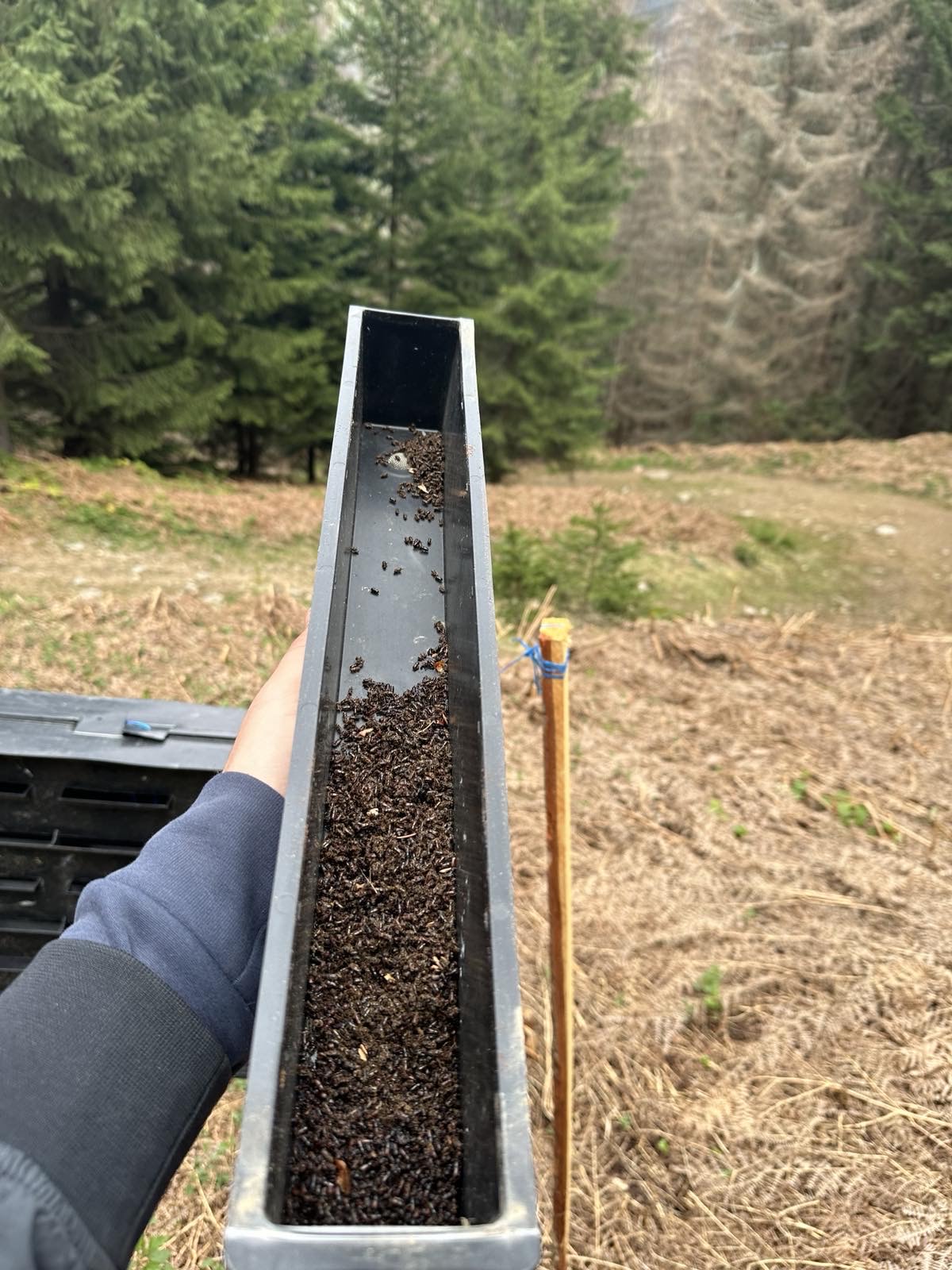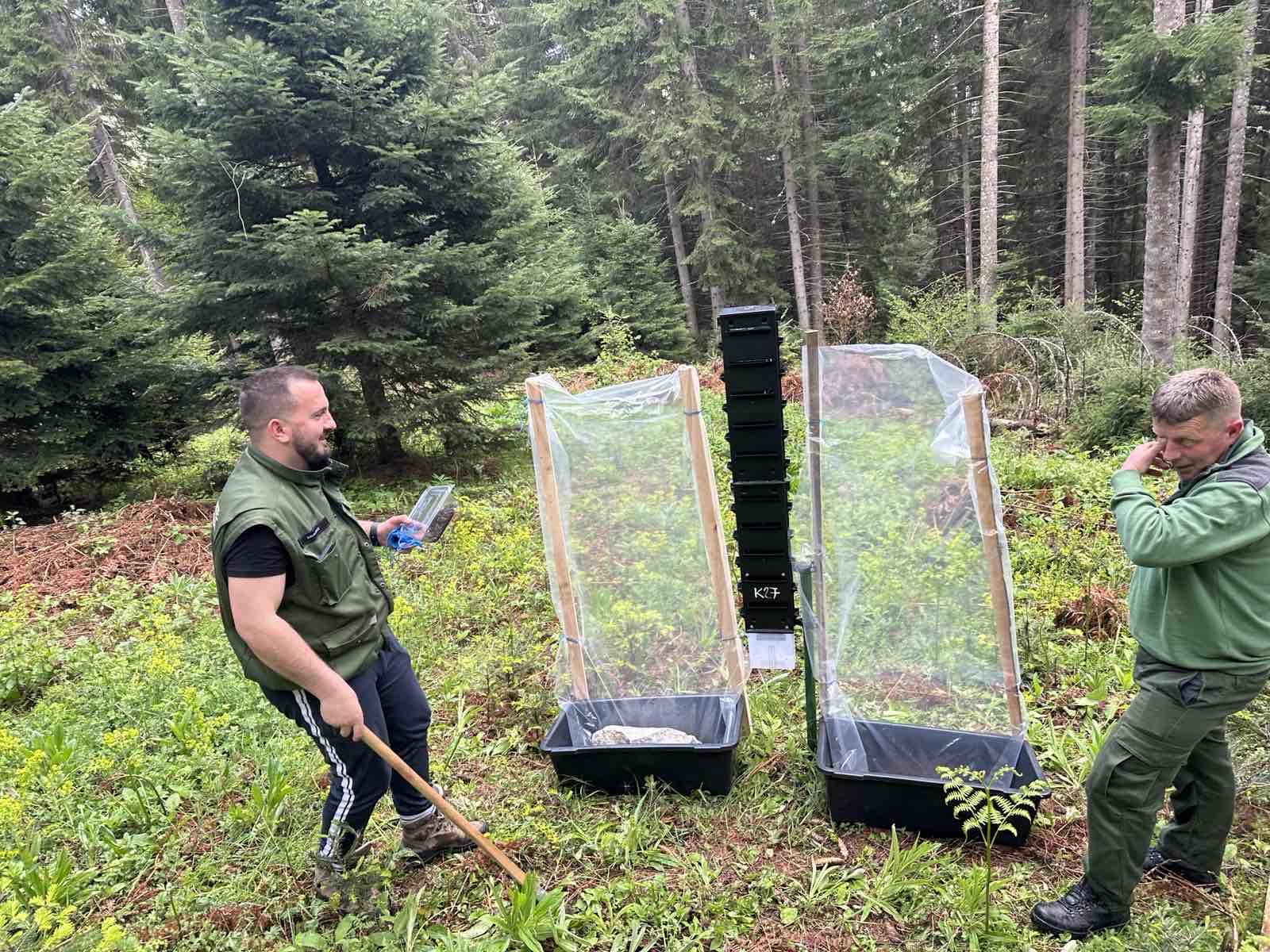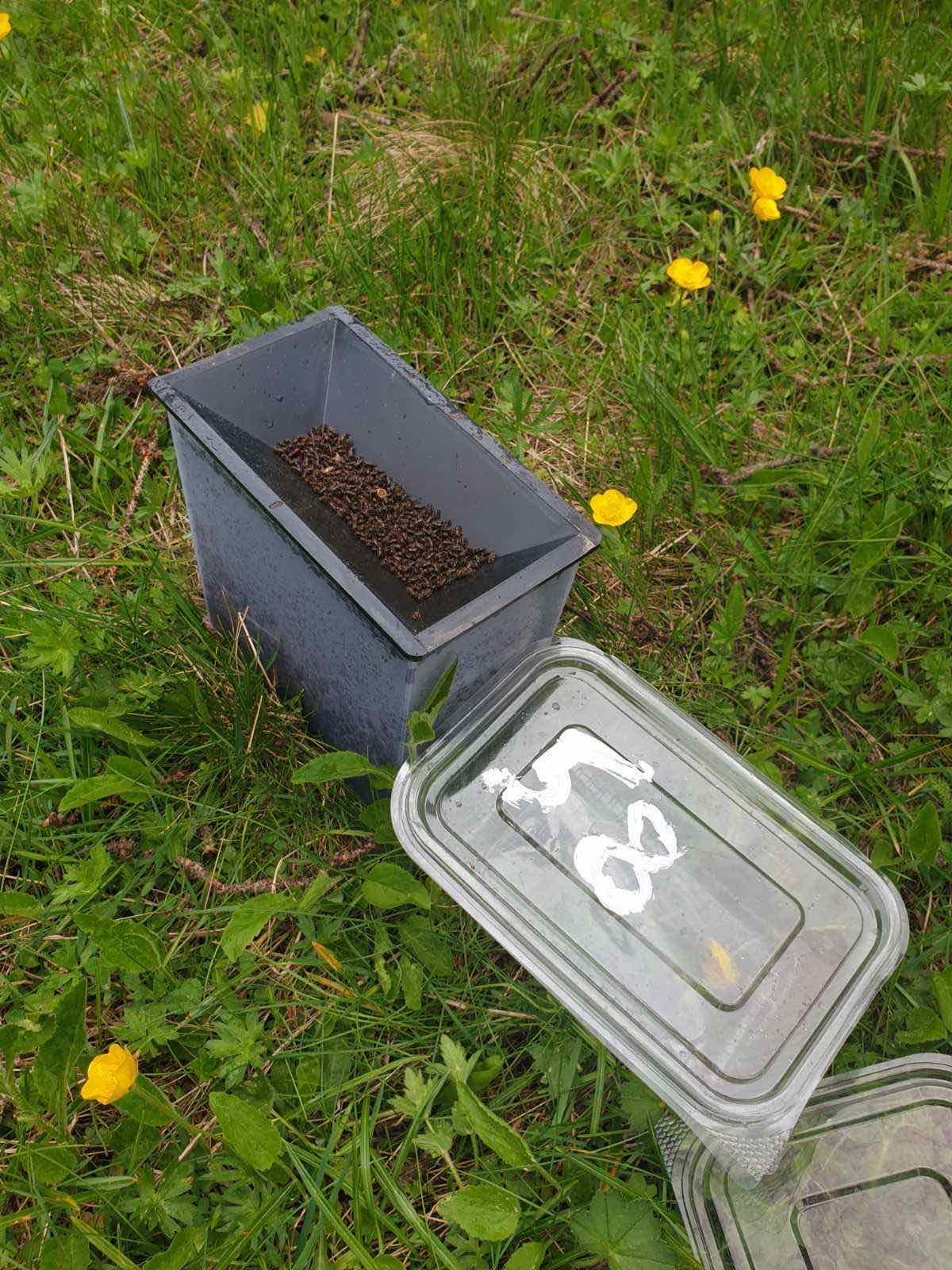




Through the project’s efforts to assess the impacts of climate change on Montenegro’s biodiversity, it has become evident that bark beetles (Scolytinae) pose a significant threat to forest health across the country. These insects, which belong to the Curculionidae family, burrow into tree bark to feed and reproduce, causing severe damage that leads to large-scale tree mortality in Montenegro’s forests.
To combat this challenge, the project has procured 85 pheromone traps, which were strategically placed in National Park Prokletije and National Park Durmitor in May 2024. These traps function by attracting and capturing adult beetles, thereby reducing their population and mitigating the risk of further infestations. Initial results indicate the capturing of 12,746.015 bark beetles during three months, showcasing the effectiveness of this targeted intervention.
- Use of Advanced Monitoring Tools: Deployment of pheromone traps ensures accurate and targeted monitoring of bark beetle populations.
- Strategic Placement: Identification and targeting of high-risk areas, such as Babino Polje and Treskavac, to maximize the effectiveness of the traps.
- Organizational Capacity: The expertise and commitment of the National Parks of Montenegro team facilitate efficient monitoring and response.
- Data Collection Infrastructure: Regular maintenance and systematic data recording support informed decision-making for forest management.
- Timely Intervention is Critical: Early detection and control of bark beetles prevent significant damage to forest ecosystems.
- Continuous Monitoring is Essential: Regularly emptying and analyzing traps ensures up-to-date insights into insect populations.
- Localized Approaches Yield Results: Focusing efforts on the most vulnerable areas provides a high return on conservation investments.
- Preventive Measures Reduce Long-Term Risks: Proactively reducing bark beetle populations mitigates their reproductive potential and limits the spread of infestation.